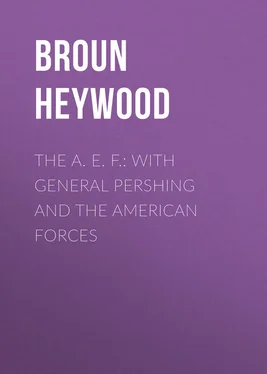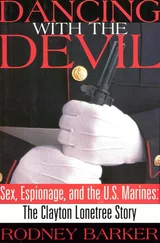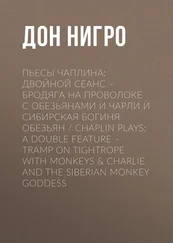Heywood Broun - The A. E. F. - With General Pershing and the American Forces
Здесь есть возможность читать онлайн «Heywood Broun - The A. E. F. - With General Pershing and the American Forces» — ознакомительный отрывок электронной книги совершенно бесплатно, а после прочтения отрывка купить полную версию. В некоторых случаях можно слушать аудио, скачать через торрент в формате fb2 и присутствует краткое содержание. ISBN: , Жанр: foreign_antique, foreign_prose, foreign_language, на английском языке. Описание произведения, (предисловие) а так же отзывы посетителей доступны на портале библиотеки ЛибКат.
- Название:The A. E. F.: With General Pershing and the American Forces
- Автор:
- Жанр:
- Год:неизвестен
- ISBN:http://www.gutenberg.org/ebooks/39072
- Рейтинг книги:4 / 5. Голосов: 1
-
Избранное:Добавить в избранное
- Отзывы:
-
Ваша оценка:
- 80
- 1
- 2
- 3
- 4
- 5
The A. E. F.: With General Pershing and the American Forces: краткое содержание, описание и аннотация
Предлагаем к чтению аннотацию, описание, краткое содержание или предисловие (зависит от того, что написал сам автор книги «The A. E. F.: With General Pershing and the American Forces»). Если вы не нашли необходимую информацию о книге — напишите в комментариях, мы постараемся отыскать её.
The A. E. F.: With General Pershing and the American Forces — читать онлайн ознакомительный отрывок
Ниже представлен текст книги, разбитый по страницам. Система сохранения места последней прочитанной страницы, позволяет с удобством читать онлайн бесплатно книгу «The A. E. F.: With General Pershing and the American Forces», без необходимости каждый раз заново искать на чём Вы остановились. Поставьте закладку, и сможете в любой момент перейти на страницу, на которой закончили чтение.
Интервал:
Закладка:
The crowd made way for the Americans as they marched toward the "Invalides" and into the court yard where the trophies won from the Germans are displayed. "You will bring more from the Boche," shouted a Frenchman. French and American flags floated above the guns and aeroplanes and minenwerfers. During the short ceremony the American soldiers looked about curiously at the trophies and up at the dome above the tomb of Napoleon. Many knew him by reputation and some had heard that he was buried there.
After a short ceremony the Americans marched out of the "Invalides" and toward the Picpus cemetery. The crowds had increased. It was hard marching now. French children ran in between the legs of the soldiers. French soldiers and civilians crowded in upon them. It was impossible to keep ranks. Now the men in khaki were just a little brown stream twisting and turning in an effort to get onward. People threw roses at the soldiers and they stuffed them into their hats and in the gun barrels. It was reported from several sources that one or two soldiers who were forced out of ranks were kissed, but no one would admit it afterwards. The youngsters in the ranks tried their best to keep a military countenance. They endeavored to achieve an expression which should be polite but firm, an air of having been through the same experience many times before. Only one or two old sergeants succeeded. The rest blushed under the cheers and entangling interest of the crowd and they could not keep the grins away when people shouted "Vive les Teddies" or threw roses at them. On that morning it was great to be young and a doughboy.
On and on they went past high walls and gardens to the edge of the city to a cemetery. There were speeches here and they were mostly French. Ribot spoke and Painlevé and Pershing. His was English and he said: "I hope, and I would like to say it that here on the soil of France and in the school of the French heroes, our American soldiers may learn to battle and to vanquish for the liberty of the world."
But the speech which left the deepest impression was the shortest of all. Colonel Stanton stood before the tomb of Lafayette and made a quick, sharp gesture which was broad enough to include the youngsters from Alabama and Texas and Massachusetts and Ohio and the rest. "Lafayette, we're here!" he said.
CHAPTER IV
THE FRANCO-AMERICAN HONEYMOON
THE day after the Americans marched in Paris one of the French newspapers referred to the doughboys as "Roman Cæsars clad in khaki." The city set itself to liking the soldiers and everything American and succeeded admirably. Even the taxicab drivers refrained from overcharging Americans very much. School children studied the history of America and "The Star Spangled Banner." There were pictures of President Wilson and General Pershing in many shops and some had framed translations of the President's message to Congress. In fact, so eager were the French to take America to their hearts that they even made desperate efforts to acquire a working knowledge of baseball. Excelsior , an illustrated French daily, carried an action picture taken during a game played between American ambulance drivers just outside of Paris. The picture was entitled: "A player goes to catch the ball, which has been missed by the catcher," and underneath ran the following explanation: "We have given in our number of yesterday the rules of baseball, the American national game, of which a game, which is perhaps the first ever played in France, took place yesterday at Colombes between the soldiers of the American ambulances. Here is an aspect of the game. The pitcher, or thrower of balls, whom one sees in the distance, has sent the ball. The catcher, or 'attrapeur,' who should restrike the ball with his wooden club, has missed it, and a player placed behind him has seized it in its flight."
The next day L'Intransigeant undertook the even more hazardous task of explaining American baseball slang. During the parade on the Fourth of July some Americans had greeted the doughboys with shouts of "ataboy." A French journalist heard and was puzzled. He returned to his office and looked in English dictionaries and various works of reference without enlightenment. Several English friends were unable to help him and an American who had lived in Paris for thirty years was equally at sea. But the reporter worked it out all by himself and the next day he wrote: "Parisians have been puzzled by the phrase 'ataboy' which Americans are prone to employ in moments of stress or emotion. The phrase is undoubtedly a contraction of 'at her boy' and may be closely approximated by 'au travail, garçon.'" The writer followed with a brief history of the friendly relations of France and America and paid a glowing tribute to the memory of Lafayette.
The name for the American soldiers gave the French press and public no end of trouble. They began enthusiastically enough by calling them the "Teddies," but General Pershing, when interviewed one day, said that he did not think this name quite fitting as it had "no national significance." The French then followed the suggestion of one of the American correspondents and began to call the soldiers "Sammies," or as the French pronounce it, "Sammees." Although this name received much attention in French and American newspapers it has never caught the fancy of the soldiers in the American Expeditionary Army. Officers and men cordially despise it and no soldier ever refers to himself or a comrade as a "Sammy." American officers have not been unmindful of the usefulness of a name for our soldiers. Major General Sibert, who commanded the first division when it arrived in France, posted a notice at headquarters which read: "The English soldier is called Tommy. The French soldier is called poilu. The Commanding General would like suggestions for a name for the American soldier." At the end of the week the following names had been written in answer to the General's request: "Yank, Yankee, Johnnie, Johnny Yank, Broncho, Nephew, Gringo, Liberty Boy, Doughboy."
Now Doughboy is a name which the soldiers use, but strictly speaking, it refers only to an infantryman. The origin of the name is shrouded in mystery. One officer, probably an infantryman, has written, that the infantrymen are called doughboys because they are the flower of the army. Another story has it that during some maneuvers in Texas an artilleryman, comfortably perched on a gun, saw a soldier hiking by in the thick sticky Texas mud. The mud was up to the shoetops of the infantryman and the upper part which had dried looked almost white. "Say," shouted the artilleryman, "what've you been doing? Walking in dough?" And so the men who march have been doughboys ever since.
Paris did not let the lack of a name come between her and the soldiers. The theaters gave the Americans almost as much recognition as the press. No musical show was complete without an American finale and each soubrette learned a little English, "I give you kees," or something like that, to please the doughboys. The vaudeville shows, such as those provided at the Olympia or the Alhambra, gave an even greater proportion of English speech. The Alhambra was filled with Tommies and doughboys on the night I went. Now and again the comedians had lapses of language and the Americans were forced to let jokes go zipping by without response. It was a pity, too, for they were good jokes even if French. Presently, however, a fat comedian fell off a ladder and laughter became general and international. The show was more richly endowed with actresses than actors. The management was careful to state that all the male performers had fulfilled their military obligations. Thus, under the picture of Maurice Chevalier, a clever comedian and dancer, one read that Mons. Chevalier was wounded at the battle of Cutry, when a bullet passed between his lungs. The story added that he was captured by the Germans and held prisoner for twenty-six months before he escaped. It did not seem surprising therefore that Chevalier should be the gayest of funny men. Twenty-six months of imprisonment would work wonders with ever so many comedians back home.
Читать дальшеИнтервал:
Закладка:
Похожие книги на «The A. E. F.: With General Pershing and the American Forces»
Представляем Вашему вниманию похожие книги на «The A. E. F.: With General Pershing and the American Forces» списком для выбора. Мы отобрали схожую по названию и смыслу литературу в надежде предоставить читателям больше вариантов отыскать новые, интересные, ещё непрочитанные произведения.
Обсуждение, отзывы о книге «The A. E. F.: With General Pershing and the American Forces» и просто собственные мнения читателей. Оставьте ваши комментарии, напишите, что Вы думаете о произведении, его смысле или главных героях. Укажите что конкретно понравилось, а что нет, и почему Вы так считаете.












